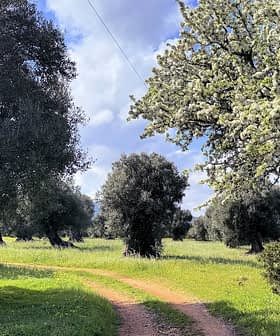European regulators have launched a new initiative that will update E.U. strategies to halt the steady decline of pollinator insects.
According to the European Commission, bees, butterflies and hoverflies are among the most quickly-disappearing insects on the continent.
Introducing its new initiative, “A new deal for pollinators,” the E.U. governing body acknowledged the growing number of European citizens and associations warning against the loss of pollinators and asking for “decisive action.”
See Also:Report: Mediterranean Agricultural Biodiversity at RiskThe new proposal’s main goal is to reverse pollinators’ decline by the year 2030.
The initiative builds on three main pillars. The first will focus on the conservation of pollinator species, the identification of their habitats and the establishment of ecological corridors for pollinators.
Pollinator
A pollinator is an organism that helps in the transfer of pollen from the male parts of a flower to the female parts, facilitating fertilization and reproduction in plants. Some common examples of pollinators include bees, butterflies, moths, hummingbirds, and bats.
The second pillar will aim at restoring degraded habitats and boosting pollinator-friendly farming through the Common Agricultural Policy (CAP). This E.U. multi-year strategy manages funds and compensates farmers who meet certain environmental standards.
The third pillar will focus on mitigating pesticide’s impact on pollinators. The Commission provided examples of how to implement this pillar, such as creating legal requirements to use integrated pest management strategies in European farming operations.
Other actions might address “additional test methods for determining the toxicity of pesticides for pollinators, including sub-lethal and chronic effects.”
The Commission explicitly cited its recent proposal for the sustainable use of pesticides. That proposed regulation would drastically reduce the use of pesticides in the European Union. According to the Commission, its implementation is crucial to restoring pollinator-friendly farmland.
On top of this, the E.U. Commission noted that the new initiative would also aim at restoring habitats for pollinators within cities.
More generically, the new initiative will aim at “tackling the impact on pollinators of climate change, invasive alien species and other threats such as biocides or light pollution.”
To assess the pollinator decline and investigate its causes and consequences, the Commission noted that the proposed initiative paves the way for more research and novel monitoring systems capable of improving loss assessment and habitat mapping.
“The decline of pollinators poses a threat to both human well-being and nature. The loss of pollinators undermines long-term agricultural productivity, further exacerbating a trend influenced by other factors, notably the current geopolitical situation with Russia’s war of aggression against Ukraine,” the Commission noted.
Introducing the new initiative, the Commission emphasized that four of five European crops depend on pollinators. “Its contribution to the E.U.’s agricultural output is estimated to be at least €5 billion per year,” the Commission wrote.
“Most of the essential benefits that pollinators provide remain unquantified, such as their contribution to nutrition security and health, or to maintaining ecosystem health and resilience by pollinating wild plants,” the document stated.
While asking European citizens to cooperate in raising public awareness, the Commission will also support member countries who define national pollinator strategies in line with the new initiative.
The regulation update comes on the heels of several other European pollinator-protection strategies, such as the E.U. Biodiversity Platform, which includes measures and goals focused on protecting pollinators. The Commission also included the new initiative in the Nature Restoration Law presented last June. Under that law, national strategies to protect pollinators must be included in each nation’s broader National Restoration Plans.










